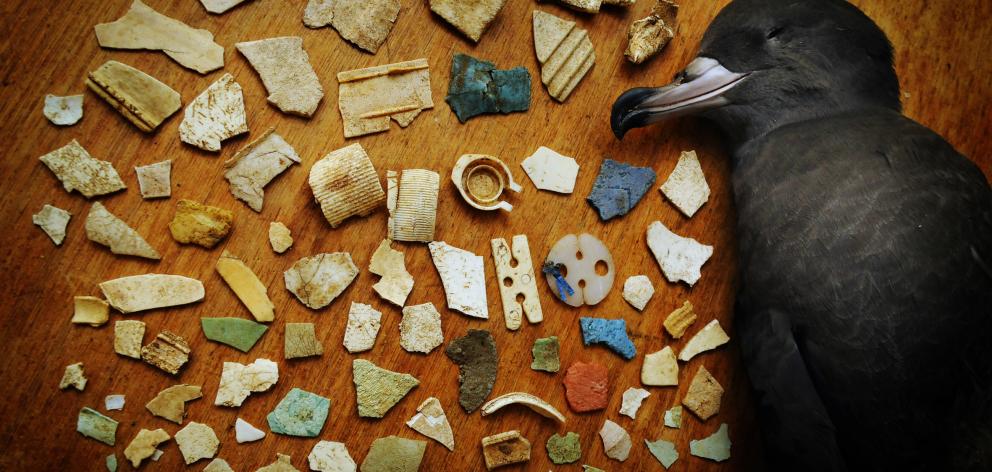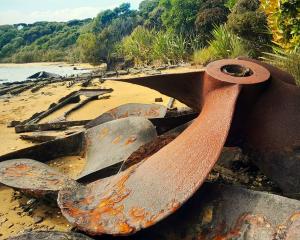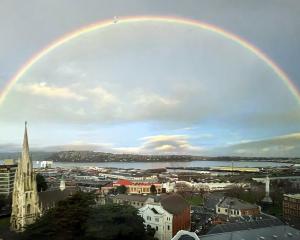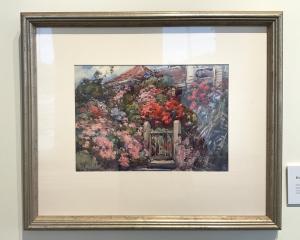

What do you take for morning tea with the founder of Plastic Free July? Not crackers and cheese, they all come plastic-wrapped. Scorched almonds? Nope, there’s a sneaky plastic liner in the box. I finally arrive 10 minutes late with a random combination of apricots, fresh coconut and almonds: all foods in their natural state. It shouldn’t be a surprise but it’s still a bit of a revelation as I look around my pantry and realise how close the link is between processing food and packaging it in plastic.
When I meet her, Rebecca Prince-Ruiz is lovely and not some scary person who goes around judging people on their plastic use. But there’s no doubting her commitment to reducing single-use plastic. And her passion is infectious, just as Plastic Free July has been.
Rebecca started Plastic Free July almost accidentally in 2011, as part of her work as a waste educator at Perth’s Western Metropolitan Regional Council. Now people in more than 130 countries are trying to go single-use plastic free each July. Somehow Rebecca has managed to keep up with the explosion of interest, even though it’s only one of the projects she’s responsible for in her part-time job.
"I could employ more than 20 people in July and still not be able to respond to all the emails about Plastic Free July," she says.
Lots of her free time goes into it as well: she’s meeting plastic-free groups all around New Zealand while here with her family for a holiday.
It started in 2011 when Rebecca visited a big recycling plant in Perth, as part of the Earth Carers programme run by the regional council. The visit inspired her, but not in the way you’d expect.
"It blew me away, I couldn’t believe the volume of recycling: how much we produce and what a complex and energy-intensive process recycling is."

Perth is Australia’s most isolated city, so all its recycling goes overseas, adding to the carbon cost of recycling.Rebecca was shocked that plastics are usually down-cycled during the recycling process, meaning they are one step away from the landfill. Plastic bottles, for example, are made into products such as irrigation pipe or fleece clothing rather than being made back into plastic bottles.
"Until then, I felt like I was doing my bit for the environment by recycling. But after that visit, I went to put a yoghurt tub in my recycling bin, and I just stopped and thought, ‘what other choices could I have made so that I wouldn’t have made this waste in the first place?’."
All fired up, Rebecca went to work the next day and asked her colleagues to join her in giving up plastic the next month. She quickly found some like-minded buddies and a newsletter was sent out to their volunteer network.It was pretty low key the first year: they didn’t even have a name for what they were doing.
"We sent out emails once a week, shared ideas, and we all kept a dilemma bag of plastic that we couldn’t avoid. At the end of month, we got together and had a glass of wine, and shared the dilemma bag."
The next year was more sophisticated, with the introduction of social media, an official Plastic Free July name and the "Top 4" challenge. The idea of giving up all single-use plastic can be intimidating, and even Rebecca says it’s very hard to achieve. The "Top 4" makes it a lot more achievable, by focusing on the main plastic items found in litter: plastic bags, single-use plastic bottles, straws and take-away coffee cups.
The Top 4 is a great place to start reducing plastic use, she says.
"They are high-volume items and with a little bit of mindfulness and thoughtfulness, it’s easy to change. Everyone has bags tucked away somewhere in their house; the issue is remembering them ... The world did actually function without plastic bags and we did use to be able to drink without a plastic straw."
When plastic is so ubiquitous, does Rebecca ever feel she’s fighting a losing battle?
"I’m a glass-half-full kind of person: if I was the other way round, I think I would be overwhelmed. But I’m optimistic because so many people that I’ve met around the world are people making a difference. So many people are concerned. This issue has evolved over 100 years. We can’t solve it overnight when it’s taken a century to develop."
It’s just as well that Rebecca is a positive person, because she’s seen some of the downsides of plastic litter at first hand. She’s sailed through the North Atlantic Gyre, where tiny pieces of plastic are brought together by currents, on a research trip sampling plankton. Scientists on the trip discovered that plankton ingest plastic, evidence that plastic is getting into the marine food-chain.
Rebecca’s friend, marine biologist Jennifer Lavars, studies flesh-footed shearwater chicks on Lord Howe Island. She’s found that all chicks have plastic in their stomachs. Their parents scoop up plastic from the sea to feed them. The chicks have up to 250 pieces of plastic in their stomach: up to 15% of their body weight. That’s like me carrying around 9kg of plastic in my stomach! I have to ask, does Rebecca have any single-use plastic at home? She laughs and grimaces at the same time.
"It’s a compromise. We’ve got rid of 85% and in July, I make a concerted effort. I think if I was single, I could pretty much do it except for medical items. But I’ve got three teenage kids."
As Rebecca talks, I can see that she makes nearly everything from scratch: tortillas, almond milk, moisturiser. I ask her where she finds the time.
"It’s just become a way of life to make everything from scratch. I’m lucky where I live. We have bulk food stores for everything like coffee, rice, grains, pasta. We eat meat once a week, and my butcher will take my container. I go to the farmers market on Sunday and that’s my church."
Rebecca says she started avoiding single-use plastic for environmental and waste-minimisation reasons, but now her family’s health is as much of a driver.
"The more I learn about plastic, the less I want it in my life."
Many participants in Plastic Free July have had similar experiences. With an incentive to avoid processed and preservative-laden food and shop locally, they find they’re healthier, happier and more connected. Rebecca says it’s a common misconception that it’s other people who litter. As we sit beside the beautiful waters of Lake Wanaka, she said it can just as easily be our recycling that blows out of the bin and ends up in our waterways.
"I just want people to know ... No-one wants to keep doing what they’re doing when they realise the impact it’s having."
- Gina Dempster is communications officer at Wanaka Wastebusters. Each week in this column, one of a panel of writers addresses issues of sustainability.
Learn more
• If you would like to find out more about how to avoid single-use plastic or are interested in going plastic free during July, go to www.plasticfreejuly.org. You can sign up for a day, a week or the whole month.











